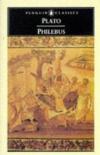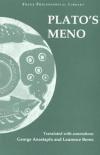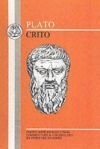
The Philebus, is one of the surviving Socratic dialogues written in the 4th century BC by the ancient Greek philosopher Plato. Apart from Socrates, the primary speaker in Philebus, the other speakers are Philebus and Protarchus. But Philebus, who wants to defend the life of pleasure, hedonism, which Socrates describes …

Meno is a Socratic dialogue written by Plato. It attempts to determine the definition of virtue, or arete, meaning virtue in general, rather than particular virtues, such as justice or temperance. The first part of the work is written in the Socratic dialectical style and Meno is reduced to confusion or aporia. In …

Crito is a dialogue by the ancient Greek philosopher Plato. It is a conversation between Socrates and his wealthy friend Crito regarding justice, injustice, and the appropriate response to injustice. Socrates thinks that injustice may not be answered with injustice, and refuses Crito's offer to finance his escape from …

Hippias Minor, or On Lying, is thought to be one of Plato's early works. Socrates matches wits with an arrogant polymath who is also a smug literary critic. Hippias believes that Homer can be taken at face value, and that Achilles may be believed when he says he hates liars, whereas Odysseus' resourceful behavior …

 English
English Español
Español Deutsch
Deutsch


